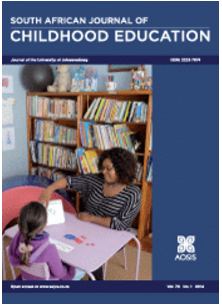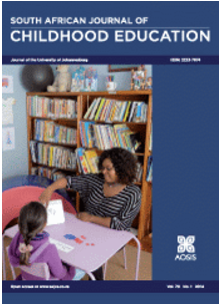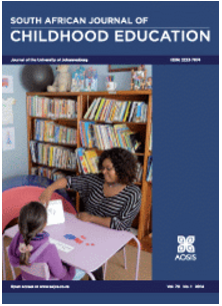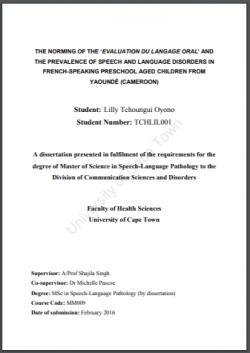South African Journal of Childhood Education 7(1):a449 Augmented feedback in autistic disorder

Type
E-Journal
Authors
ISSN
2223-7682
Category
ECCE
[ Browse Items ]
Publication Year
2017
Publisher
Aosis OpenJournals, Durbanville, Cape Town, South Africa
URL
[ private ]
Pages
9 p.
Subject
Early childhood development, ECD, Primary education, Learners, Autistic Disorder, Motor learning principles, Knowledge of performance, Knowledge of results, Feedback, Eye contact, South Africa
Tags
Abstract
Children with autistic disorder (AD) display atypical eye contact and struggle with the social imitation of eye contact. Impaired social imitation may be indicative of disruptions in motor learning processes. The application of specific motor learning principles, such as external feedback, may suggest which variables will result in positive change in eye contact. The study aimed to determine the effects of knowledge of performance (KP) and knowledge of results (KR) as types of feedback on the frequency and duration of elicited and spontaneous eye contact in children with AD. A two-phase multiple-probe, multi-treatment (cross-over), single participant design with a withdrawal component was used. Mixed treatment effects were obtained. Overall effects suggest that KR results in the greatest positive change over a short period of time regarding frequency and duration for both elicited and spontaneous eye contact. This type of feedback seems to be the most effective for spontaneous eye contact. The provision of KP, after elicited and spontaneous eye contact, produced positive effects for duration only. The current Phase 1 evidence suggests that KR (which is goal-directed with fewer additional instructions) may be more beneficial to children with AD. These findings are in accordance with the limb motor learning literature and may therefore support preliminary evidence for disrupted motor learning during eye contact imitation in children with AD.
Description
Article
Number of Copies
1
| Library | Accession No | Call No | Copy No | Edition | Location | Availability |
|---|---|---|---|---|---|---|
| Main | 570 | 1 | Yes |



